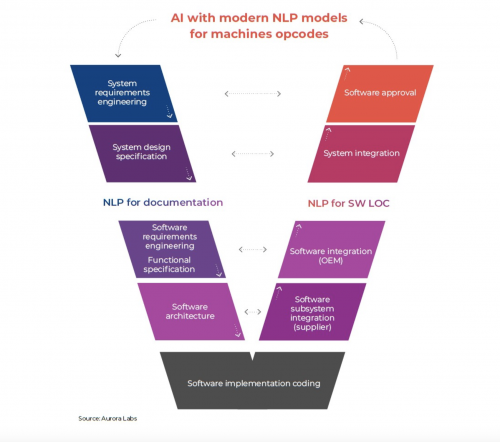With vehicles featuring more advanced driver assist systems than ever — as well as autonomous capabilities — it’s no wonder software has become the most important element in a modern vehicle. As a result, automotive software is becoming more complex than ever, with more lines of code, modules, and components. This means the challenge of maintaining quality and reliability becomes even more pronounced.
Traditional software development practices are struggling to keep pace with the growing needs of today’s vehicles. Many developers continue to use outdated methods, such as repetitive and time-consuming testing strategies, in an attempt to improve quality and reliability. The new era of software-defined vehicles demands an innovative approach to meet the need for comprehensive testing and rapid iteration.
Artificial intelligence as a quality assurance tool
Artificial intelligence (AI) tools are emerging as key allies in automotive software development — especially when it comes to quality assurance. At the design level, AI tools can provide tested and proven blueprints, reducing the need to build every project from scratch. This significantly simplifies the development process and saves crucial time and resources. Furthermore, AI can provide a framework that maintains consistency and speeds up the development process.
When it comes to testing, AI’s potential is equally transformative. These tools can identify specific tests to focus on based on the updated software functions and their interdependencies, which helps optimize test selection. The end result is a more efficient testing process that helps support the creation of reliable software and updates.
Aurora Labs’ Auto Detect adds a layer of AI to the testing process to give actionable insights into which tests have the highest probability of failure. This means that when a new version is committed to the software repository, Auto Detect will optimize the order of test runs by selecting the tests to run first, ensuring a faster time to failure. This speeds up the software testing process while still ensuring all essential functions are tested.
The same tool can also improve quality by ensuring 100% test coverage. With hundreds of millions of lines of code and complex interdependencies throughout a single vehicle, manually trying to achieve 100% test coverage is a monumental task. Auto Detect uses Line-of-Code Intelligence to deliver detailed insights into the coverage of your tests, allowing developers to see what’s covered by the testing scenarios — and, crucially, what’s not.
Culture change
In an industry as established as automotive, change can be difficult to implement, especially when it comes to ingrained development processes. However, the need for process innovation is as pressing as the need for software innovation. Traditional development models, such as the sequential production line model, are often inadequate for managing complex software projects.
An agile approach embraces small iterative steps and anticipates potential issues. Tools such as those developed by Aurora Labs are already proving to be game-changers in this area. For example, the automotive industry is familiar with the V-model development methodology, where customer requirements and corresponding tests form the two arms of the “V” with development at the base.
Traditionally, aligning these two aspects has been a manual task. However, AI tools can now read and understand documents, interpret the context, and map out the connection between the requirements, the software, and the corresponding tests. In this way, AI is not just working side by side with software development but is becoming an integral part of the process by identifying areas for improvement and ensuring compliance with regulations.
The road to reliable automotive software development lies in striking a balance between software innovation and process refinement. AI tools can undoubtedly catalyze this journey, but their success hinges on the ability of developers to weave these tools into an efficient, scalable, and innovative development process — one that is prepared for the rapid changes defining the future of the automotive industry.
If you’d like to find out more about how Aurora Labs’ AI tools can support your automotive software development, download the whitepaper here: Five software development challenges in automotive and how AI is addressing them.







 9 min read
9 min read
![Agile Development in Automotive [Pt. 3] Agile Development in Automotive [Pt. 3]](https://www.auroralabs.com/wp-content/uploads/2024/04/Tal-Avidan_Blog_lobby_768x432-1-1024x576.jpg)